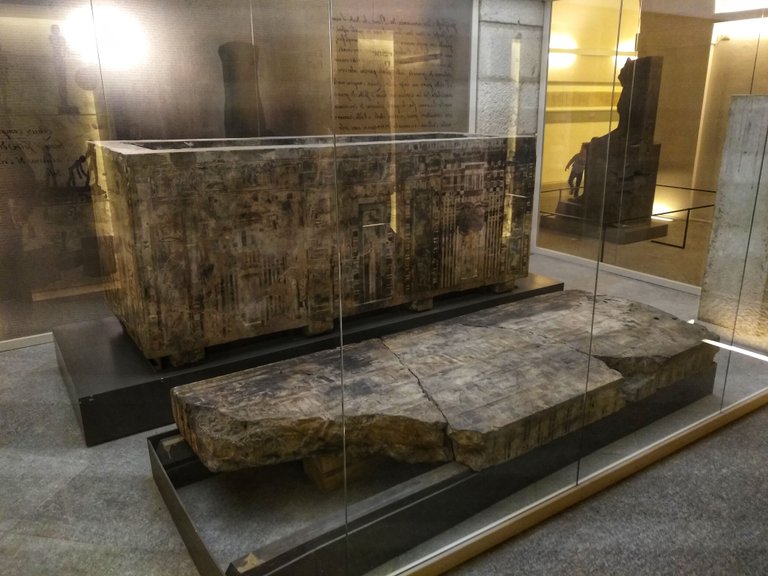
Today I would like to share with you some beautiful antiquities in the Predynastic period, which spanning more than a thousand years, the Predynastic is the historical period when the basic features of pharaonic Egypt were first defined. These features, despite changing over time, remained clearly recognizable throughout the pharaonic period. The lack of written sources - the 1st hieroglyphs only appeared at the end of this age - has often made it tough for the archaeologists to understand how the early inhabitant of Egypt lived.
The Gebelein Cloth (3600 - 3350 BC)
Gebelein was a town in Egypt. In this place, the archaeologist, Giulio Farina, found an artefact of exceptional importance folded and laid along the side of the deceased was a linen cloth with Nilotic scenes featuring boats and human figures involved in various activities painted in red, white and black colors. It is hard to reconstruct the original form and size of the cloth. It is a plain weave with the weft yarns passing alternately over and under the wrap yarns. The cloth survives in a number of fragments, reconstructed onto four panels during 1930s. This find is important not only because it is a unique survivor from such an early date, but also because its portrayal of the cultural environment of the period provides us with special insight into the life of Predynastic communities. It is noticed that this artefact remains the oldest example of a painting on linen until now.
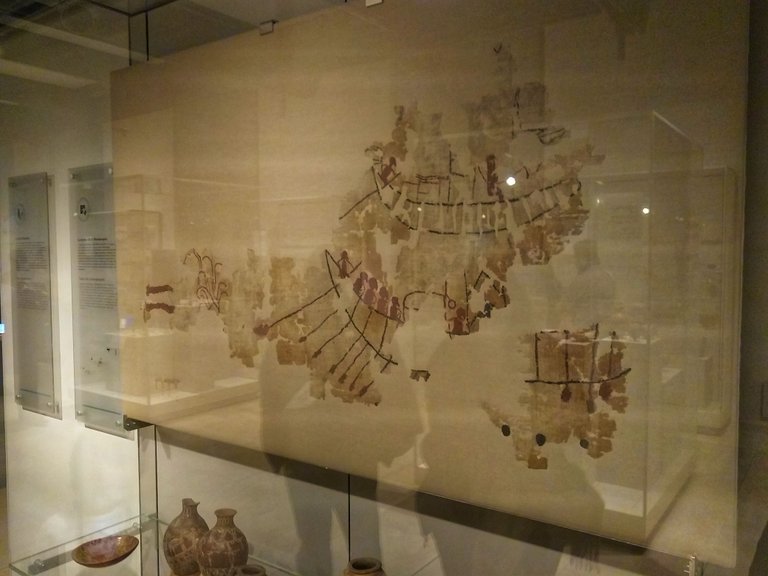
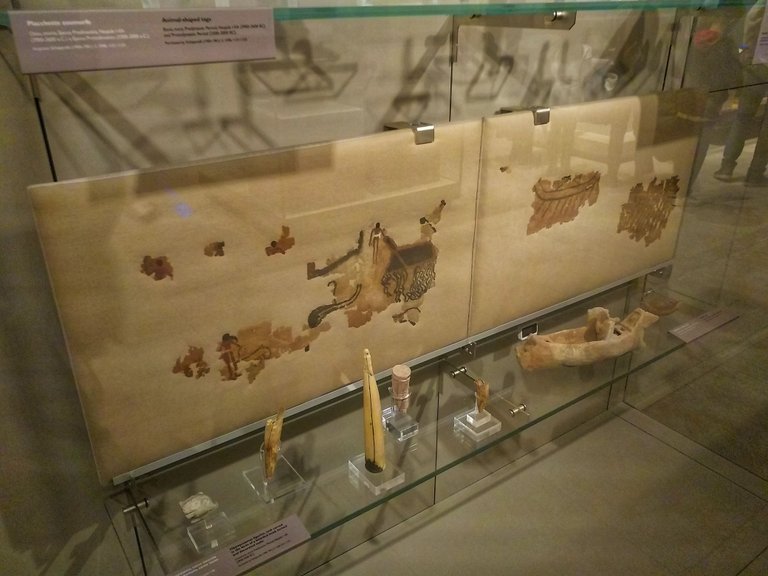
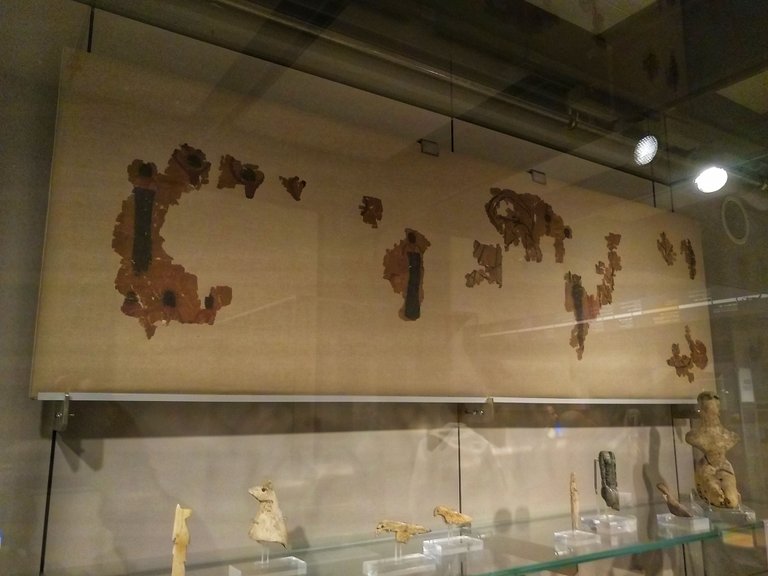
Ornament (3700 - 3300 BC)
The first makeup palette began to appear from as early as the Neolithic. Initially made in geometric shapes and later in zoomorphic forms, the palettes were of varying size and almost exclusively made of mudstone.
Mudstone, a type of mudrock, is a fine-grained sedimentary rock whose original constituents were clays or muds.
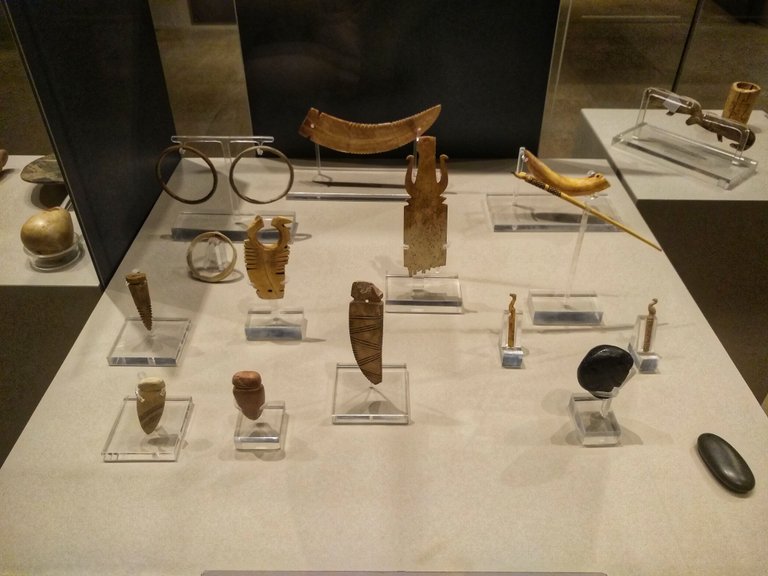
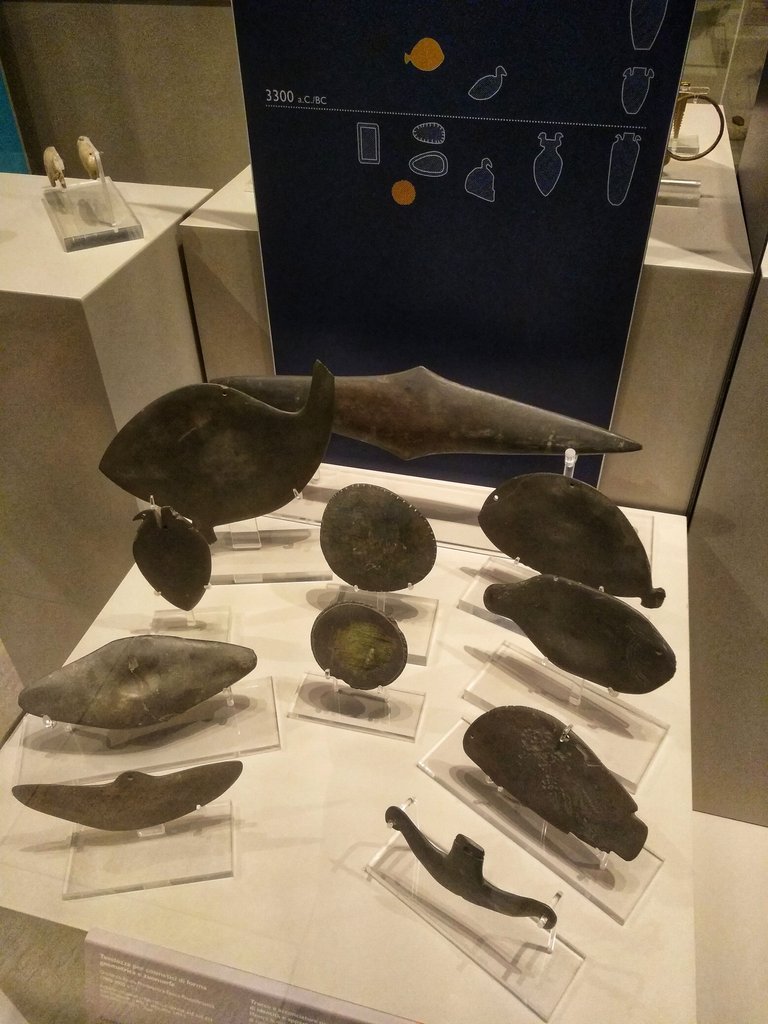
Used as a base for grinding coloured pigments for eye makeup, many of them display clear signs of use and traces of the green mineral malachite(Malachite is a copper carbonate hydroxide mineral). The other objects linked to body care include combs, hairpins and ointment container made of bone or ivory. There are also carefully made ornaments such as shell necklaces, bone and mother-of-pearl bracelets, and pendants made of hippopotamus tusks and from gems, pearls and amulets. These objects are particularly important for Egyptological research because they were to be privileged vehicles of official royal art during the formative phase of the pharaonic state. [//]:# (!steemitworldmap 45.0684296 lat 7.6843041 long ME2 d3scr)
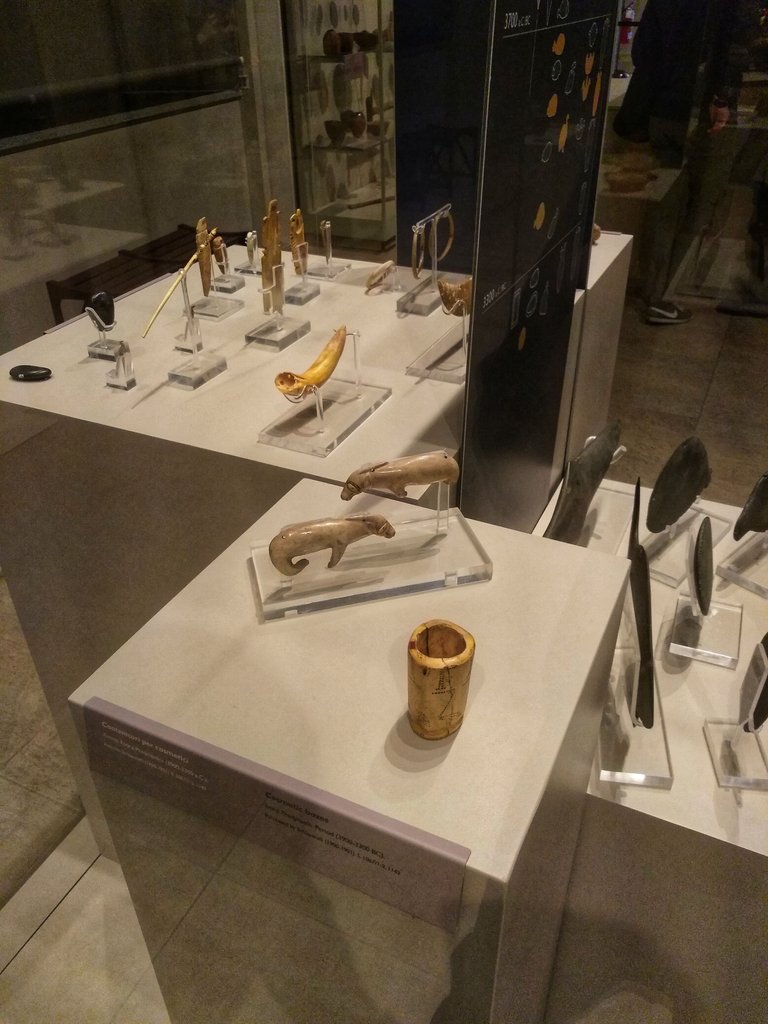
Can you guess what is function of the tool in below figure? I am not the researcher of history or archaeology. Just want to share with you some beautiful antiquities. If I made some critical errors in my post, please feel free to help me correct them, thank you very much.
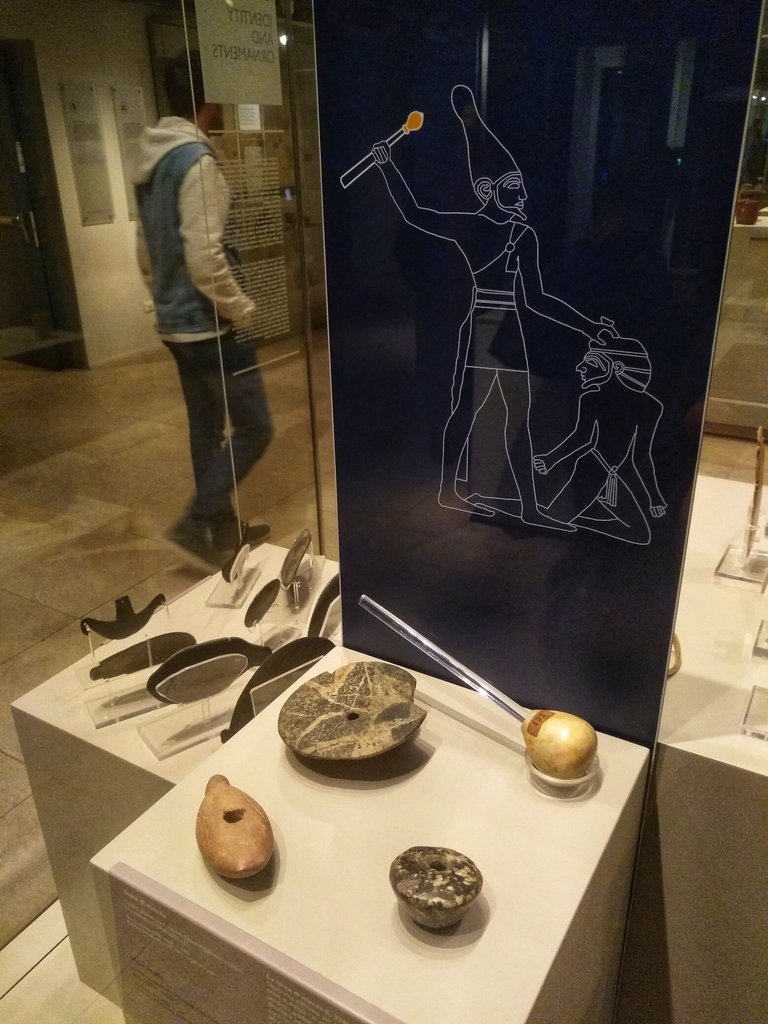
The original post belong to @victory622
Thanks for your reading !
Please feel free to upvote, comment and follow me @victory622
我猜那个超大金色棒棒糖是用来教训不听话的小孩的。比如敲敲他天灵盖什么的。
可见你是一个善良的人,基本是这个意思,象征权利,点拨点拨天灵盖。。。
我第一眼看到以为是。。。杀人的。
That's a good photo-documentary. I have hardly gone to museums because I end up spending most of my time infront of one or two artifacts instead of watching all of them ... :)
I have the same feeling with you, that's why I go to this museum every weekend.
Congratulations, Your Post Has Been Added To The Steemit Worldmap!
Author link: http://steemitworldmap.com?author=victory622
Post link: http://steemitworldmap.com?post=victory-s-museum-trip-ii-the-museo-egizio-of-turin-iii
Want to have your post on the map too?
Nice posting... bro..
Thanks a lot.
@originalworks